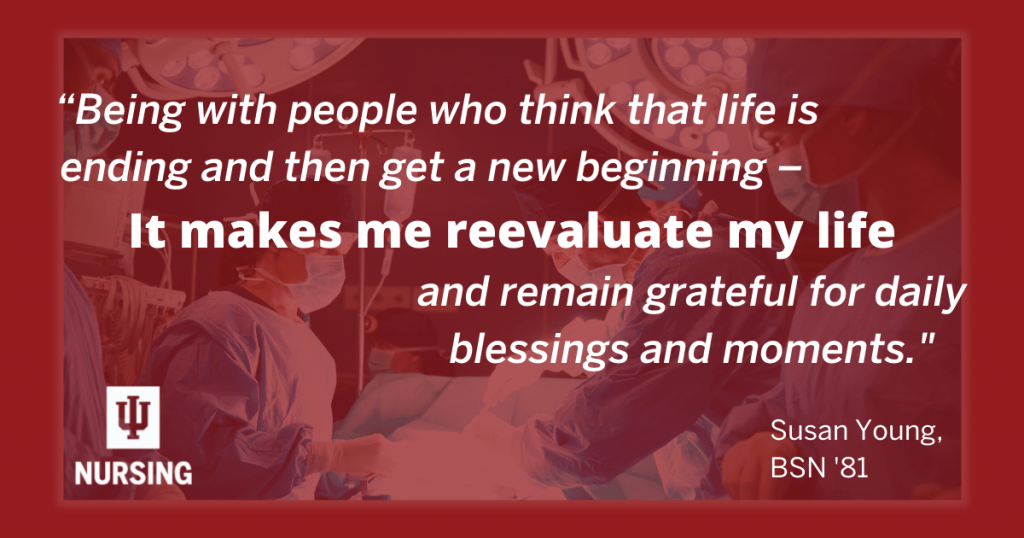In 2021, Susan Young celebrated her 40th anniversary in the nursing profession. The milestone led the IU School of Nursing alumna to reflect on her role as a transplant nurse, a life-changing experience she says she was fortunate to stumble upon.
"It's a funny story," says Young, BSN '81. "I was working on an outpatient unit with three friends, and we all needed to change jobs. The only floor to take all three of us was transplant."
Looking back, Young couldn't be more grateful for the unexpected change of direction. She spent the next two decades in the transplant unit of IU Health University Hospital working with transplant recipients and living organ donors.
"Transplant nursing is all about a population of people who have been given a second chance at life," explains Young.
Transplant nursing is all about a population of people who have been given a second chance at life.”
Today in the United States, more than 100 thousand people are waiting for a lifesaving organ transplant, with a new person added to the national transplant waiting list every 10 minutes.
When a patient receives a phone call that their wait for an organ is over, transplant nurses help them prepare for their procedure and assist with the transplant surgery. Following surgery, transplant nurses dress wounds, administer medications, monitor vital signs, and watch for infections and organ rejection.
"We help them recuperate from surgery and teach them about their new medications and living a new way of life," says Young. "Our patients sometimes have a hard time coping with the realization that someone died to make the organ available to them, but we try to impress upon the recipient that this is something the donor wanted to do."
More than 4 million Indiana residents are currently signed up as organ, tissue and eye donors. Still more choose to give the gift of life as living organ donors, in which they can donate one of their two kidneys or a portion of their liver. Living donation can be directed, in which a donor names the person to receive the transplant, or altruistic, in which a donor chooses to save the life of a stranger.
"It's neat to be with the living donors because we consider them such heroes," says Young.
After four decades as a nurse, Young has decided it's once again time to change direction. She recently accepted a position in guest relations. Although she'll no longer be working directly with living donors and transplant recipients, she'll forever be impacted by the field of donation and transplantation and its ability to save lives.
"Being with people who think that life is ending and then get a new beginning - it makes me reevaluate my life and remain grateful for daily blessings and moments," she says.
Visit IU Health to learn more about its programs for living kidney donation and living liver donation. To sign up as an organ, tissue and eye donor, visit DonateLifeIndiana.org.


